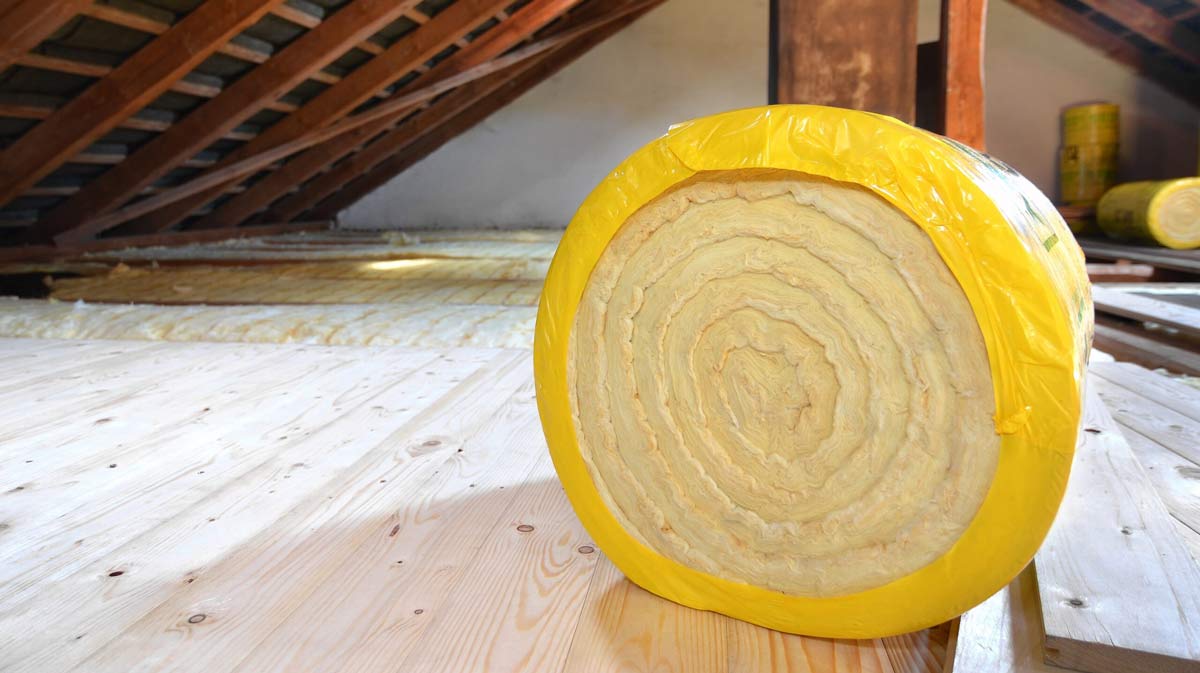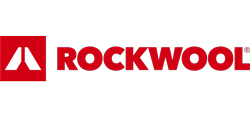Leonard Splaine Home Insulation in Northern Virginia

Insulation is Crucial to the Comfort of Any Home
Although it is frequently overlooked, home insulation is a crucial part of any house. Insulation keeps your home cozy and lowers your energy costs by forming a barrier between the inside and outside of your house. A constant, comfortable indoor temperature is ensured all year round with proper insulation since it helps to retain heat in the winter and cool air in the summer. Insulation not only regulates temperature but also improves fire resistance, lowers carbon emissions, and reduces noise pollution.
Did you know that by insulating your crawl space, basement, attic or exterior walls you can make your whole house more comfortable and save on your energy costs? Any home older than 10 years was not built with today’s strict energy standards and has less than adequate insulation. Additional insulation could save you up to 20% on your heating and cooling energy costs over the next year. Insulation also absorbs sound and can help with noise control. This is truly an investment that will give you returns.
The best sort of insulation for your home can be found in a variety of shapes and materials, depending on your demands in terms of energy efficiency, budget, and climate. For the purpose of making an informed choice, it is essential to comprehend how each insulation material differs from the others. Each insulating material has specific benefits and drawbacks.
For instance, some insulating materials might be less expensive or simpler to install, yet others might provide superior energy efficiency or noise reduction. When choosing the sort of insulation that is ideal for you, it is crucial to take into account both your budget and the particular requirements of your home.
By aiding in the management of heating and cooling expenses, insulation is essential in lowering energy prices. The average American home uses between 50% and 70% of its energy for heating and cooling, according to the U.S. Department of Energy. Your home can use less energy to heat and cool itself if it is properly insulated, which can result in significant financial savings.
Your carbon footprint can be decreased with the help of proper insulation. Carbon emissions from dwellings contribute considerably to global warming and climate change. By reducing energy usage, insulation can help to decrease the amount of carbon emissions produced by your home.
Insulation can lower your home's noise pollution and energy costs while also improving your home's fire protection. In the event of a fire, insulation can contribute to a reduction in the rate of flame spread, giving inhabitants more time to flee. Additionally, insulation can improve your home's overall comfort by acting as a sound barrier to lessen noise pollution and increase quietness.
In this regard, home insulation is an essential component of every home and should not be disregarded, as was said before in this section. The right insulation keeps your home cozy, lowers energy costs, cuts carbon emissions, improves fire resistance, and muffles noise. Given the range of insulation materials available, it is crucial to take into account your home's unique requirements before selecting the one that would work best for you.
Why it's Important to Insulate Your Home
However, we just briefly touched on the significance of insulation in our homes. The reasons why insulation is crucial for homes will be covered in detail in the paragraphs that follow in this section:
Overall, insulation is a key element in building a comfortable and energy-efficient living space. Insulation offers homeowners a number of advantages including decreasing energy use, enhancing indoor air quality, and raising house value. Investing in insulation now will pay off in the long run with financial savings, increased comfort, and environmental sustainability.
Energy efficiency and cost savings
Insulation stabilizes the interior temperature of a house, reducing the amount of energy needed to heat and cool it. As a result, less energy is needed to maintain a comfortable living space, which over time results in significant energy bill savings. Homeowners can reduce their annual energy costs by up to 20–30% by insulating their homes.
Increased comfort
By stabilizing the interior temperature, insulation contributes to the maintenance of a comfortable living environment. It also makes it simpler to keep a constant temperature throughout the house by lowering drafts and cold spots. This implies that homeowners can take use of a cozy living environment all year long, regardless of the weather.
Noise reduction
By serving as a barrier to sound transmission, insulation can also aid to lessen noise pollution. This is crucial for homeowners who reside in busy or noisy locations since insulation can contribute to a calm and quiet home environment.
Improved indoor air quality
By limiting the entrance of allergens and pollutants from the outside, insulation can also help to improve indoor air quality. Insulation keeps the indoor air clean and healthy, which is necessary for everyone but is especially crucial for those with allergies or respiratory disorders. Insulation does this by plugging air leaks and stopping drafts.
Increased home value
Insulating a home can boost its worth and attractiveness to prospective purchasers. Insulation is essential to creating an energy-efficient living space, which is why energy-efficient homes are growing in popularity. Homeowners can boost a home's worth and appeal to purchasers by insulating it, which will make it simpler to sell in the future.
Environmental benefits
Insulation provides major environmental advantages. Insulation aids in lowering greenhouse gas emissions and other hazardous pollutants linked to energy production by lowering energy usage. Homeowners can thereby lessen their carbon footprint and aid in the development of a more sustainable future.
Looking to Insulate Your Home?
Are you interested in adding or upgrading your home insulation and reap the rewards of energy savings? Then give our team of experts at Leonard Splaine a call today. We will find the best solution for your needs!

Types of Home Insulation Materials
There are numerous types of insulating materials that can be used in dwellings, each having special qualities, benefits, and drawbacks. Choosing the ideal material for your home's particular requirements can be made easier if you are aware of the differences between these various types of insulation.
Fiberglass Insulation
The most prevalent type of insulation used in homes is fiberglass insulation. Tiny glass fibers are spun together to create the material, which has a fluffy, cotton-like texture. Fiberglass insulation is affordable and simple to install. It is a well-liked material for insulating walls, floors, and ceilings because it is also fire-resistant.
Cellulose Insulation
Cellulose insulation is created from recycled paper goods, such as newspapers and cardboard. Before being blown into walls, attics, and crawl spaces, the paper is shred and treated with chemicals that are fire retardant. Eco-friendly, highly effective in blocking out noise, and sometimes a more cost-effective option for insulation is cellulose.
Spray Foam Insulation
Insulation made of spray-on foam is a popular option for people who want to save the most energy possible. It is sprayed into walls, ceilings, and crawl spaces and is constructed of polyurethane. A tight seal that aids in preventing air leaks is created when spray foam insulation expands to fill any openings or crevices. A great option for lowering noise pollution is spray foam insulation.
Mineral Wool Insulation
Rock wool and recovered slag are used to make mineral wool insulation. Since it is such a good insulator, it is frequently used to insulate ductwork, pipes, and industrial applications. Additionally fireproof and having great soundproofing qualities, mineral wool insulation.
Reflective Insulation
Aluminum foil or other reflective materials are used to make reflective insulation. By deflecting radiant heat from the house, it functions to keep the interior cool throughout the summer. Reflective insulation is an inexpensive choice for insulating attics and crawl spaces and is frequently utilized in hot areas.
Natural Fiber Insulation
Materials like cotton, wool, and hemp are renewable resources that are used to make natural fiber insulation. It has strong thermal insulation qualities and is a green solution for insulation. Although natural fiber insulation is more expensive than other types of insulation, it is also more environmentally friendly.
Radiant Barrier Insulation
Made of reflecting materials, radiant barrier insulation is intended to reflect heat away from the house. It is frequently combined with other kinds of insulation and is a common option for hot areas.
Budget, climate, and energy requirements should all be taken into account when deciding on the appropriate type of insulation for your home. For homeowners on a tight budget, fiberglass and cellulose insulation are popular options because they are inexpensive and simple to install. Although more expensive, spray foam insulation has the best energy and soundproofing qualities. Industrial applications benefit greatly from mineral wool insulation, while hot regions benefit greatly from reflective insulation. Eco-friendly natural fiber insulation is available, although it costs more than other options.
When selecting insulation for your home, the R-value is a crucial factor to take into account in addition to the type of insulation. A higher R-value denotes better insulation. The R-value evaluates the insulation's capacity to resist heat flow. Depending on the climate and the area of the house that needs insulation, different R-values are advised.
In conclusion, there are various insulation materials that can be used in homes, each with certain advantages and qualities. The best type of insulation for your home will depend on a number of variables, including your budget, climate, and energy requirements. When choosing insulation for your home, take the R-value into account and select a material that provides the optimum thermal insulation qualities for the demands of your home.
Factors to Consider to Ensure You Choose the Right Insulation Materials for Your Home
We’ve examined some of the crucial elements to take into account while deciding on the best sort of insulation for our homes. We'll go into more detail about these aspects in this part, along with the reasons selecting the appropriate insulation for your home is crucial because it affects your home's energy efficiency, comfort, and overall performance. When choosing the proper insulation for your home, you should take into account the following factors:
R-Value
As previously mentioned, the R-value is a measurement of how well insulation resists heat movement. The insulation performs better thermally the greater its R-value. It is crucial to pick an insulation material with the right R-value for both the particular portion of your home that needs insulation and the climate zone in which you live. You can get assistance from a qualified professional in determining the right R-value for your house.
Material
The performance, cost, and environmental impact of insulation materials vary, as we observed in the previous sections. Mineral wool, fiberglass, cellulose, and spray foam are typical insulation materials. When choosing an insulation material, it is crucial to take cost, performance, and environmental impact into account as each material has advantages and disadvantages of its own.
Moisture resistance
Moisture resistance is an important consideration when choosing insulation for your home. In addition to losing its ability to insulate, wet insulation can serve as a haven for mold growth and other moisture-related issues. Particularly in rooms of the house that are prone to moisture, like bathrooms, kitchens, and basements, it is crucial to select an insulating material that is resistant to moisture.
Fire resistance
Regarding insulation in vulnerable regions of the house, such as the attic or next to heating appliances, fire resistance is a crucial factor. Some insulation materials are more fire-resistant than others when it comes to ratings for fire resistance. It's crucial to pick an insulation product that's suitable for the region of the house where it will be installed.
Installation
The efficiency of insulation depends on proper installation. Poorly placed insulation may have voids, gaps, and other problems that lessen its efficiency. It is crucial to pick an insulation product that a qualified contractor can install correctly and safely.
Environmental impact
Both during production and during usage, insulation can have a major negative influence on the environment. It is crucial to think about how the insulating material you select will affect the environment, taking into account things like its embodied energy, recycling potential, and disposal. Sheep wool and recycled cellulose are two eco-friendly insulation options that provide good performance and minimal environmental effect.
Cost
When choosing insulation for your home, cost is always a crucial factor. The price of various insulating materials varies, with some being more costly than others. It is crucial to take into account the insulating material's overall cost-effectiveness, taking into account elements like its energy efficiency, durability, and environmental impact.
Existing insulation
It's crucial to take into account the type and quantity of insulation that is already there when adding insulation to an existing property. While some insulation types can be put on top of already-installed insulation, others might need to be taken out first. To choose the best course of action for your property, it is crucial to speak with a qualified contractor.
The selection of the proper insulation for your home is a crucial decision that can affect the energy effectiveness, comfort, and overall performance of your home, to summarize what we've covered here. When choosing an insulation material, it's vital to take into account aspects like R-value, substance, moisture resistance, fire resistance, installation, environmental impact, cost, and existing insulation. You can make an informed choice and ensure that your insulation is placed appropriately and safely by speaking with a qualified contractor.
How Insulation Works
Insulation works by minimizing the heat transfer between a home's interior and exterior. Without insulation, a house can lose up to 25% of its heat via the floors, walls, and roof. In contrast, a poorly insulated house may heat up in the summer, making cooling it challenging and expensive.
To develop a barrier that slows down the flow of heat through a building's envelope is the fundamental idea underlying home insulation. The home's walls, roof, floors, windows, doors, and other spots where heat can enter or leave the building make up the envelope. Air pockets are trapped by insulation materials, which reduce heat transfer through conduction, convection, and radiation.
Conduction
Heat transfers through a substance, such as wall or ceiling, via a process known as conduction. Air pockets are trapped by insulation materials with a high thermal resistance (R-value), which reduces the rate of heat transmission by conduction. An insulation's R-value increases with thickness because it can trap more air pockets.
Convection
Convection Heat moves through a fluid, like air or water, in a process known as convection. Materials used in insulation that is intended to reduce convection do so by minimizing air flow by trapping air pockets. Convectional heat loss is decreased as a result of this.
Radiation
When heat is emitted from a heated object—like a wall or roof—and is absorbed by a cooler object—like the outside air—this is known as radiation. Radiation-blocking insulation materials lower the amount of heat absorbed by the cooler object by reflecting heat back towards the source.
As discussed above, there are various types of insulation materials used in home insulation, such as fiberglass, cellulose, spray foam, mineral wool, and others. Each type of insulating material has unique qualities, advantages, and disadvantages, and is appropriate for various parts of a house.
The Most Important Areas to Insulate in Your Home
Despite the fact that every house is unique, there are some spaces that need to be insulated more than others. The following are some of the key sections in your house that need insulation:
Attic
One of the most crucial parts of your home to insulate is the attic. Since heat rises, a significant portion of the heat in your home may escape through the attic if the insulation is inadequate. Your home will stay cooler in the summer and warmer in the winter with attic insulation. In order to prevent gaps and voids, it's crucial to install the insulation properly and use a material with an R-value appropriate for your climate zone.
Walls
Insulating your walls can significantly improve the comfort and energy performance of your home. Uninsulated walls can let heat in during the summer and let heat escape during the winter, which can make your home less pleasant and cost more to heat and cool. Wall insulation comes in a variety of forms, including fiberglass, cellulose, and spray foam. In order to prevent gaps and voids, it is crucial to select an insulation material that is suitable for the particular type of wall you are insulating.
Floors
Particularly in portions of the house constructed over unheated spaces like basements or crawl spaces, insulating the floors can help keep your home warmer in the winter and cooler in the summer. There are various forms of floor insulation available, such as spray foam, rolls, and batts. To prevent voids and gaps, it's crucial to apply the insulation properly and to use a material that is suitable for the particular type of floor you're insulating.
Windows and doors
Despite not technically being regions of insulation, windows and doors are significant contributors to heat loss in a house. Heat can be lost through windows and doors, but they can be sealed and kept from draughts by adding weatherstripping and caulking. Another way to increase energy efficiency is by installing storm windows or double-paned windows.
Basement
To minimize heat loss and moisture issues, it's crucial to insulate the walls and floors of your basement if your home has one. By minimizing drafts and keeping the area warmer in the winter and cooler in the summer, basement insulation can also contribute to the improvement of the home's overall comfort. Basement insulation comes in a variety of forms, including fiberglass, foam board, and spray foam. In order to prevent gaps and voids, it's crucial to select an insulation material that is suitable for the particular type of basement you're insulating.
Pipes
Insulating your hot water pipes can help you save energy and decrease heat loss. Insulating your pipes can also assist to lower the danger of moisture-related issues and to keep them from freezing in the winter. Pipe insulation comes in a variety of forms, including foam sleeves and wrap-around insulation. In order to prevent voids and gaps, it is crucial to select an insulation material that is suitable for the particular type of pipe you are insulating.
Your home can be made more comfortable, energy-efficient, and functional overall by insulating it. Even though every house is unique, there are several spaces that should be insulated more than others, including the attic, walls, floors, windows, doors, basement, and pipes. Proper insulation can lower your energy costs, increase house comfort, and have a smaller negative impact on the environment. It is crucial to speak with a qualified contractor to choose the right insulation materials and installation methods for your particular home and to make sure that the insulation is installed properly.

Our 100% Satisfaction Guarantee
We're so confident you'll find us to be a company you can rely on for all your heating and air conditioning needs that we guarantee your complete satisfaction! Contact us today and experience the difference for yourself.
Best Home Insulation Materials Manufacturers
There are various producers of insulation for homes, and each one has distinctive goods to offer. The type of insulating material, the manufacturer's reputation, and the caliber of their products should all be taken into account when selecting an insulation manufacturer. Some of the top producers of materials for home insulation are listed below:
Owens Corning
A leading producer of insulation materials including fiberglass, mineral wool, and foam insulation is Owens Corning. The business is renowned for its top-notch goods, creative ideas, and dedication to sustainability. The insulation products from Owens Corning are made to offer the best thermal performance, use less energy, and enhance indoor comfort. In fact, we construct and enhance your home's or business's energy efficiency using Owens Corning insulation.
CertainTeed
Another leading producer of insulation materials, such as fiberglass, spray foam, and blown-in insulation, is CertainTeed. The company's products offer improved thermal performance, noise reduction, and moisture management and are made to fit a variety of applications. Additionally well renowned for its dedication to sustainability, CertainTeed provides a variety of environmentally friendly insulation materials.
Johns Manville
Fiberglass, spray foam, and mineral wool insulation are just a few of the many products offered by Johns Manville, a market leader in insulation materials. The business is renowned for its top-notch goods, exceptional thermal performance, and dedication to sustainability. The insulation products from Johns Manville are made to be as energy efficient, acoustically comfortable, and as quiet as possible.
Knauf Insulation
Knauf Insulation is a well-known producer of blown-in insulation, fiberglass, rock wool, and other insulation materials. The business is dedicated to sustainability and provides a selection of environmentally friendly insulation products. The products made by Knauf Insulation are engineered to offer the best possible thermal performance, noise reduction, and fire resistance.
Rookwool (formerly Roxul)
Mineral wool insulation from Roxul (now known as ROCKWOOL) is renowned for its outstanding thermal efficiency and fire resistance. The company's products are made to have the best possible indoor comfort, noise reduction, and energy efficiency. The insulating products from Roxul are recycled and environmentally beneficial...
It's vital to think about things like the type of insulation material, the manufacturer's reputation, and the quality of their products when selecting a manufacturer of house insulation materials. A professional contractor should be consulted to determine the best insulation products and installation methods for your particular home. You may contribute to increasing the comfort, energy efficiency, and overall performance of your home by picking the correct insulation materials and manufacturer.
Contact us to Learn More About Our Expert Home Insulation Services
It's time to take action and invest in quality house insulation if you're sick of paying outrageous energy costs each month but yet feeling uneasy in your own home.
Insulation is one of our specialities. If you’re a homeowner, commercial building owner, building contractor, or remodeler -- we have the insulation you need to help you reduce your energy costs and live comfortably all year round.
Contact us to start reaping the rewards of a well-insulated home right away.

We Are the Expert Solution to All Your HVAC & Home Comfort Needs
Take it from our customers: we solve problems and deliver solutions like no other HVAC company can. Contact us today!






